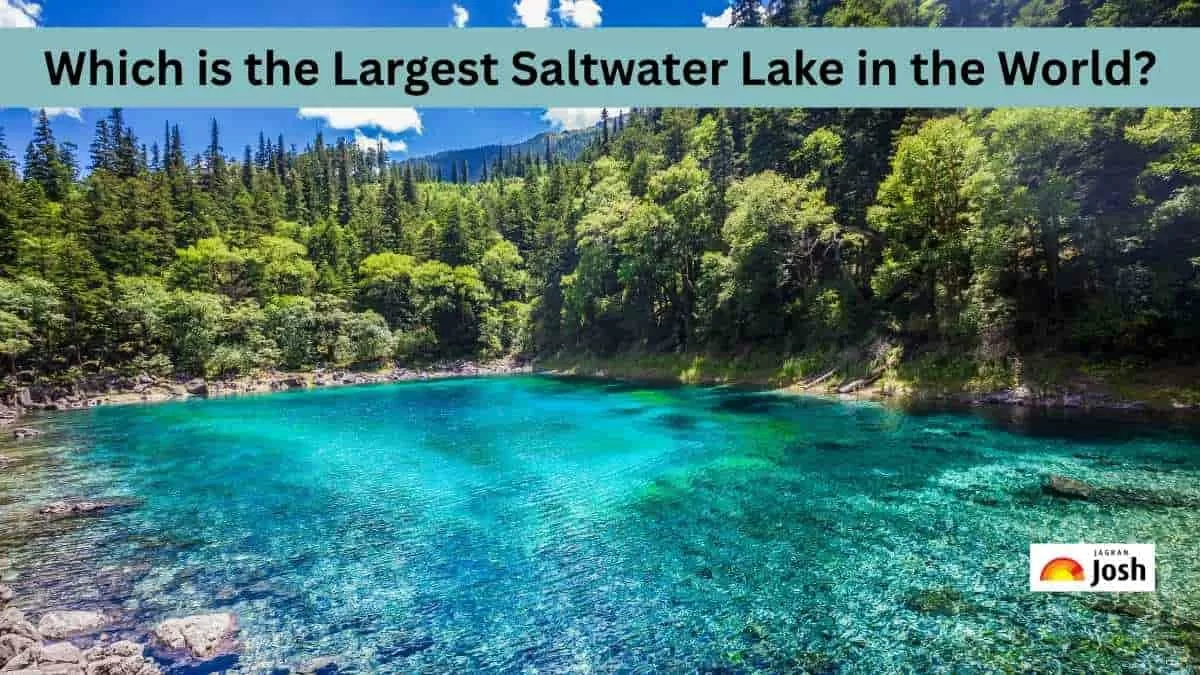Biggest Saltwater Lake in the World: The Caspian Sea is the largest saltwater lake in the world. It spreads across five countries: Russia, Kazakhstan, Turkmenistan, Iran, and Azerbaijan. The surface area of the Caspian Sea is close to 370,000 square kilometres, which is larger than any other inland body of water on the planet.
Which is the Biggest Saltwater Lake in the World?
The Caspian Sea is the biggest saltwater lake in the world by both area and volume. Its water is mildly saline due to the lack of an outlet to the ocean, making it an endorheic lake. Fed by rivers like the Volga, Ural, and Terek, the Caspian Sea does not drain into any ocean, which causes minerals and salts to accumulate over time.
Its unique ecosystem supports many species found nowhere else on Earth, including the Caspian seal and sturgeon fish, whose roe is used to produce the world-famous Beluga caviar. With rich biodiversity and strategic natural resources, the Caspian Sea is both ecologically and economically important.
Read More: Which is the Largest Lake in India?
Largest Saltwater Lakes in the World
| Rank | Lake Name | Type | Continent | Area (Approx.) |
| 1 | Caspian Sea | Saltwater | Europe–Asia | 370,000 sq. km |
| 2 | Lake Urmia | Saltwater | Asia (Iran) | 5,200 sq. km |
| 3 | Great Salt Lake | Saltwater | North America (US) | 4,400 sq. km |
| 4 | Lake Van | Saline | Asia (Turkey) | 3,755 sq. km |
| 5 | Lake Turkana | Alkaline | Africa (Kenya) | 6,405 sq. km |
What is a Saltwater or Saline Lake?
A saltwater lake contains a high concentration of salts, usually due to evaporation and the lack of an outlet. These lakes are often formed in endorheic basins, where water flows in but doesn’t flow out to the sea. As a result, minerals stay behind and build up over time. Saltwater lakes can support unique ecosystems, but their biodiversity depends on salinity levels.
Is the Caspian Sea a Lake or a Sea?
Although called a ‘sea’, the Caspian Sea is scientifically a lake. It is the largest enclosed inland body of water on Earth. The term ‘sea’ has been used historically because of its size and saline water, but it has no connection to any ocean, confirming its classification as a lake.
Read More: Which is the Largest State in India?
Interesting Facts About the Caspian Sea
Home to Endangered Caspian Seals
The Caspian Sea is the only natural habitat of the Caspian seal, one of the smallest and most endangered seal species in the world. These seals are now under threat due to pollution and habitat loss.
Rich in Oil and Natural Gas
The seabed of the Caspian Sea is known for its massive reserves of oil and natural gas, making it a hotspot for energy production and international relations among bordering nations.
Beluga Caviar Capital
The Beluga sturgeon, found in the Caspian Sea, produces Beluga caviar one of the most luxurious and expensive delicacies in the world.
Unique Salinity Levels
Salinity in the Caspian Sea varies widely from almost fresh in the north to much saltier in the south. This gradient creates diverse habitats for marine and freshwater species.
No Outflow
As an endorheic lake, the Caspian Sea has no natural outlet to the ocean. Water escapes only through evaporation, contributing to its salt content.
Read More: Which Is The Oldest Railway Station In The World?
